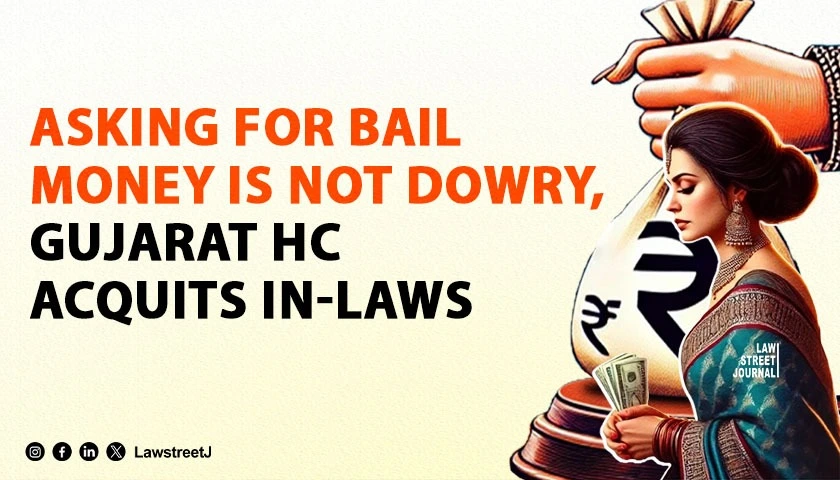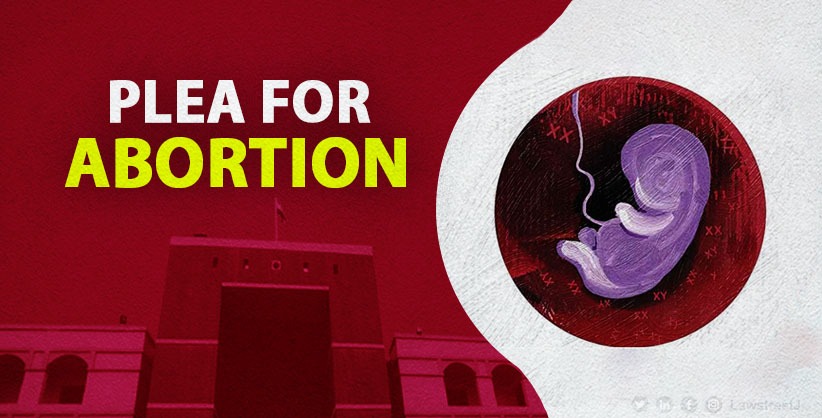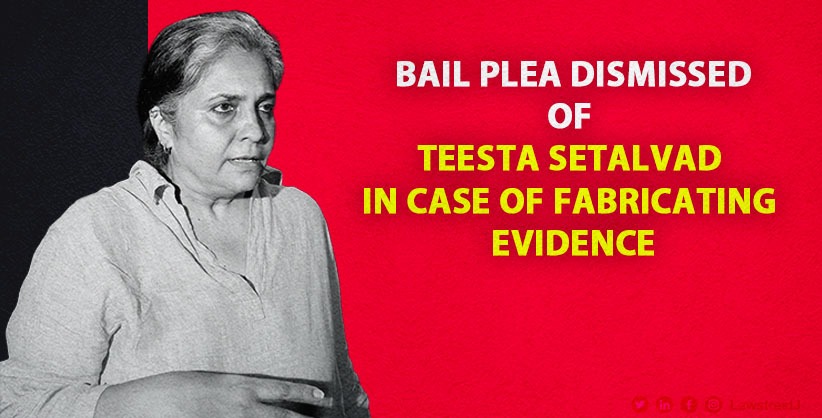Gujarat: The Gujarat High Court upheld the acquittal of in-laws accused of dowry death, emphasizing that demanding money for legal expenses cannot be considered dowry harassment under the Indian Penal Code.
Chief Justice Cheekati Manavendranath Roy and Justice D.M. Vyas made crucial observations on the legal definition of dowry and its implications in cases of alleged dowry death.
The court addressed the case involving State of Gujarat vs. Natubhai Golanbhai Khuman & Others, where the accused were charged under Sections 304(B), 306, 498(A), and 114 of the Indian Penal Code for allegedly causing the death of their daughter-in-law.
The court noted the specific circumstances of the case, stating, “The admitted case of the prosecution is that they only demanded to arrange for money, i.e., Rs. 50,000/-, to meet the legal expenses for the purpose of applying for bail for the husband and father-in-law, who were in judicial custody.”
Addressing the core legal issue, the court observed, “Strictly speaking, in our considered view, it does not come within the meaning of ‘dowry’ as defined under Section 2 of the Dowry Prohibition Act, 1961, for the purpose of proving a case under Section 304(B) of IPC.”
The court highlighted the crucial distinction between dowry harassment and other forms of financial demands, stating, “A perusal of the definition of ‘dowry’ makes it manifest that it must be a demand made in connection with money or any valuable security in connection with marriage—either before marriage, at the time of marriage, or after the marriage.”
In a significant finding, the court noted, “From the evidence on record, there is also any amount of doubt regarding the said allegation of the prosecution that the father-in-law, i.e., accused no.1, or other accused nos.2 to 4 made any such demand to the deceased to arrange for Rs. 50,000/- to meet the legal expense for the purpose of applying for bail to her husband.”
The court emphasized the lack of medical evidence, stating, “Even though the doctor who conducted the autopsy on the deceased initially opined in the postmortem certificate that the cause of death was shock due to cardio-respiratory failure and that viscera was preserved for chemical examination, he did not specifically state in the postmortem report that the said cardio-respiratory failure was due to poisoning.”
The court also found inconsistencies in the prosecution’s case regarding financial capacity, observing, “The accused have produced bank account statements of accused nos.1 and 2 during their examination under Section 313. A perusal of the same shows that there were about Rs. 2 to 3 lakhs in their account at the relevant time.”
The court concluded that the prosecution failed to establish the essential elements of dowry death under Section 304(B) IPC, noting, “When the prosecution failed to prove that the deceased died by consuming poison and also failed to prove that there was any demand made by the accused for dowry or for any valuable security or property… it is difficult to hold that any case under Sections 304(B), 306, 498(A), and 114 of IPC was made out against any of the accused.”
The court directed that the impugned judgment dated 06.07.2013 rendered in Sessions Case No. 79 of 2011 by the Additional Sessions Judge, Amreli, acquitting the respondent-accused, is hereby confirmed.
Mr. Bhargav Pandya, APP, appeared for the State, and Mr. Pavan Barot for Mr. P.B. Khandheria appeared for the respondents.
Case Title: State of Gujarat vs. Natubhai Golanbhai Khuman & Others



.jpg)
![Gujarat High Court Denies Bail to Man for Obscene Comments on PM and Late Mother [Read Order]](/secure/uploads/2023/06/lj_1661_9baa7d8a-0faf-4761-b395-81c631cd129f.jpg)






